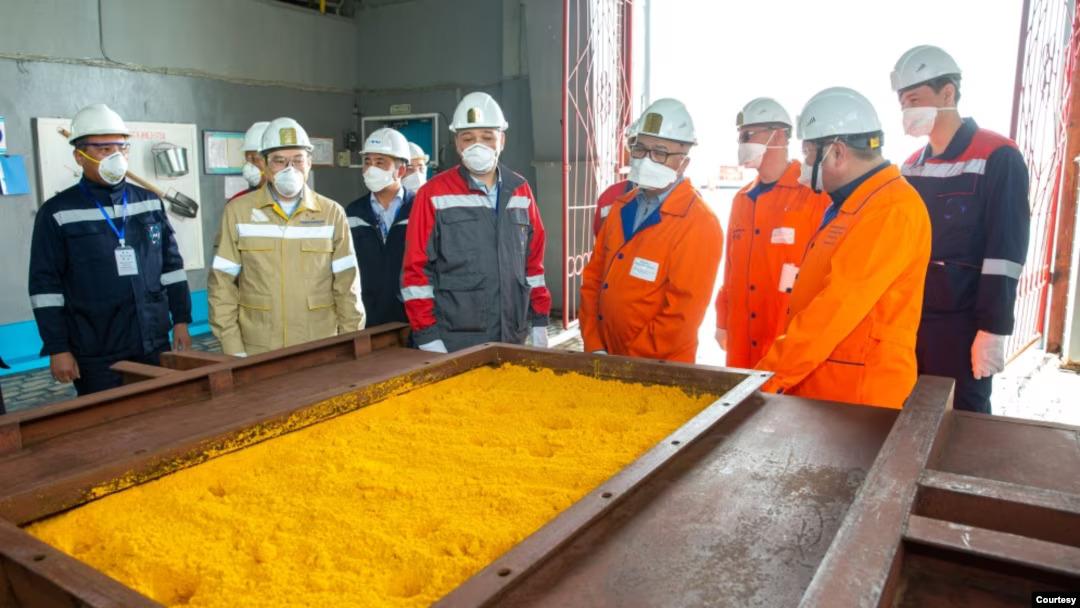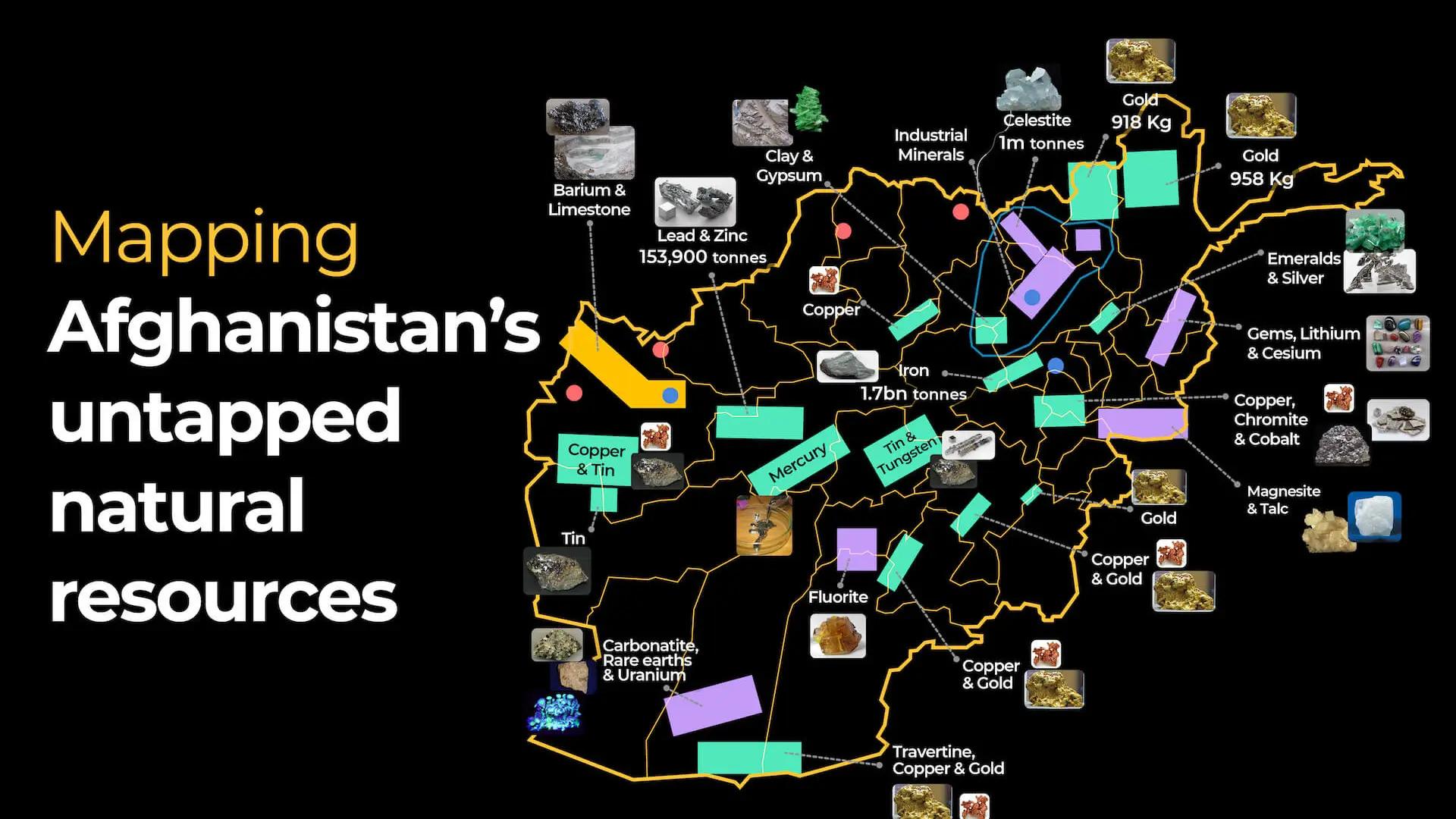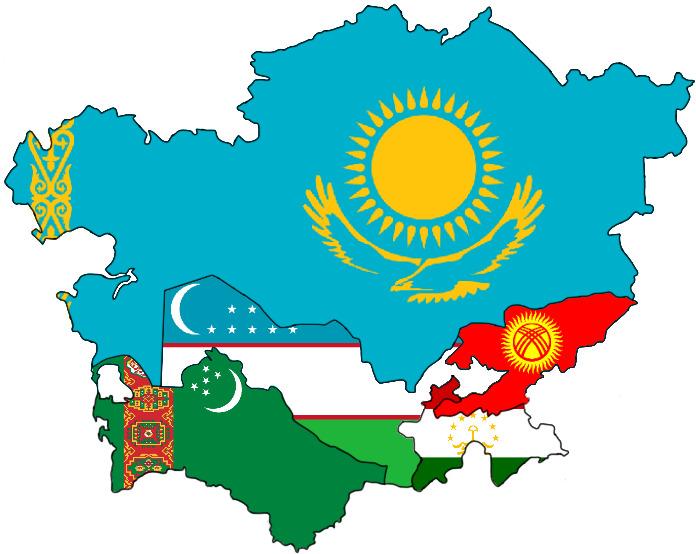Central Asia's rare-earth reserves & global geopolitics The new great game
Central Asia, encompassing Kazakhstan, Kyrgyzstan, Tajikistan, Turkmenistan, and Uzbekistan, along with Afghanistan and Mongolia, is home to some of the world's largest but largely untapped reserves of rare-earth minerals. This has been known for some time, but three recent developments have dramatically increased the global importance of these reserves.
Firstly, rare earths have become crucial for modern technology and the clean energy transition, putting them at the center of international focus.
Secondly, China, traditionally the primary processor and supplier of rare earths, has reduced or cut off supplies to Western firms in response to sanctions following Moscow’s expanded invasion of Ukraine. This move has forced the West to seek alternative sources, turning their attention to Central Asia.
 Thirdly, the Central Asian countries themselves see Western involvement in their rare-earth sectors as a way to reduce Russian control and prevent Beijing from replacing Moscow as the dominant power in the region.
Thirdly, the Central Asian countries themselves see Western involvement in their rare-earth sectors as a way to reduce Russian control and prevent Beijing from replacing Moscow as the dominant power in the region.
A new economic frontier
All Central Asian governments are keen to develop their rare-earth sectors as a potential replacement for the revenues they have historically generated from oil and gas sales. However, like their petroleum industry, these countries lack the resources to develop these sectors independently and must therefore rely on external funding.

This necessity has triggered a diplomatic contest involving China, Russia, and the West, which some are dubbing the “Great Game of the XXI century”. Unlike the historical Great Game, which was a duel between Russia and Great Britain, this new version involves a broader array of participants, including the Central Asian nations themselves.
Diplomatic maneuvering
The involvement of outside powers is critical in this context. Over the past year, all major players have sent senior officials to Central Asia and invited Central Asian representatives to their capitals to discuss rare-earth development. The differing agendas of these external powers complicate and intensify the competition.
China has taken a leading role, especially in Kyrgyzstan and Tajikistan, where it controls most rare-earth mining leases. This aligns with Beijing’s ambition to dominate the rare-earth market, allowing it to project power in Central Asia and counter its geopolitical competitors. However, China's aggressive actions have sometimes provoked opposition in Central Asia, which might have been avoided with more cautious behavior. Additionally, Chinese moves have spurred the West into action in an area it had largely neglected.

The European Union, United Kingdom, and Western allies, including South Korea, have significantly increased their focus on rare earths in Central Asia, issuing major reports and intensifying diplomatic efforts. These countries are now incorporating rare earths in Central Asia into their foreign policy agendas, something rarely seen before 2022.
Russia’s involvement is more complex. On one hand, Moscow welcomes China’s role in limiting Western influence in Central Asia’s rare-earth sector. On the other hand, Russia fears that more competition in the rare-earth market will depress prices, which would hurt its economy. Moscow’s mixed signals aim to avoid offending China while trying to curb the growth of the rare-earth sector in Central Asia, a strategy that may not resonate well with the Central Asian countries, especially if Western investments materialize.
Economic & political dynamics
The competition for rare-earth resources in Central Asia presents both opportunities and risks for the region’s governments. These countries can leverage this rivalry to play one external power against another, potentially securing better deals and more investment. However, this also exposes them to significant dangers, both from external and internal sources.
Externally, China or Russia might adopt more aggressive tactics if they perceive their influence waning. Internally, the uneven development of the rare-earth sector could create new classes of winners and losers, disrupting existing economic and political balances. This disruption could trigger instability, particularly in Tajikistan but also in other Central Asian nations, as the rare-earth boom could shift power dynamics within national elites and between central governments and resource-rich regions.
A delicate balance
The potential benefits of developing rare-earth resources in Central Asia are significant. These minerals are essential for the production of high-tech devices, renewable energy technologies, and various defense applications. However, the path to these benefits is fraught with challenges. Central Asian countries must navigate complex geopolitical rivalries, manage internal economic disparities, and address potential social unrest stemming from resource development.
The new Great Game over rare earths is a high-stakes contest that could redefine the geopolitical landscape of Central Asia. For the Central Asian nations, this game offers a chance to diversify their economies and reduce reliance on traditional energy exports. For external powers, securing access to these resources is critical for technological advancement and strategic independence. The outcome of this competition will depend on the ability of all involved to balance their interests and manage the associated risks.
In conclusion, the rush for Central Asia's rare-earth minerals highlights the region's strategic importance in the global supply chain. As the demand for these critical resources grows, the Central Asian countries find themselves at the center of a complex and evolving geopolitical contest. Their ability to navigate this landscape will determine not only their economic future but also the broader balance of power in the region.








